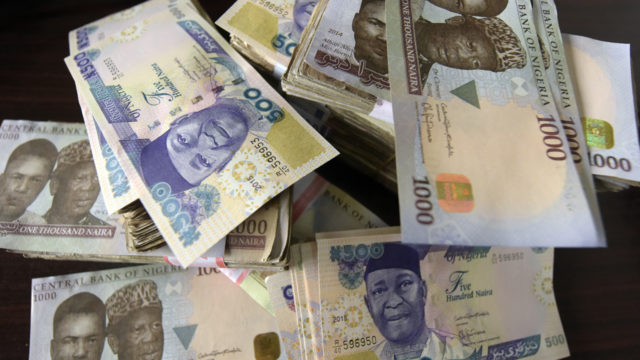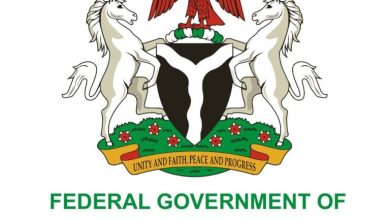Naira Experiences Significant Decline in Official Market, Falls to N1348/$

In apparent reflection of the dollar scarcity plaguing the economy, the Naira yesterday recorded its biggest fall in the official Nigerian Foreign Exchange Market (NAFEM) where it depreciated by 24 per cent to 20 N1,348 per dollar.
Data from FMDQ showed that the indicative exchange rate for NAFEM fell to N1348.63 per dollar from N891.9 per dollar last week Friday, indicating N456.73 or 24 per cent depreciation for the naira.
This represents the lowest level for the Naira since June 14th last year when the Central Bank of Nigeria, CBN eliminated multiple exchange rates in the official market.
The volume of dollars traded on NAFEM fell by 28.5 percent to $404.5 million last week from $565.82 million the previous week.
Similarly, the naira depreciated to N1,425 per dollar in the parallel market from N1,400 per dollar over the weekend.
Consequently, the gap between the official and parallel market exchange rates narrowed to N76.37 per dollar yesterday from N508.1 per dollar last weekend.
Meanwhile the CBN in a bid its determination to address the backlog of verified foreign exchange transactions, yesterday released $500 million to various sectors.
This comes barely a week after the apex bank paid approximately $2.0 billion to settle outstanding commitments across manufacturing, aviation, and petroleum sectors.
Disclosing this in a statement, the Acting Director of the Corporate Communications Department at the CBN, Mrs. Hakama Sidi Ali, noted that the management of the CBN was committed to settling all legitimate foreign exchange backlogs within a short time frame.
Reiterating the assurances of the Governor, Mr. Olayemi Cardoso, Sidi Ali said the CBN had begun implementing a comprehensive strategy to improve liquidity in the Nigerian foreign exchange markets in the short, medium, and long term.
As the Governor said, the CBN’s focus is on addressing fundamental issues that have hindered the effective operation of the Nigerian FX markets over the years,” she added.
While noting that the forex market reforms were designed to streamline and unify multiple exchange rates, foster transparency, and reduce arbitrage opportunities, Sidi Ali expressed confidence that a stable exchange rate would boost investor confidence and attract foreign investment.
She, therefore, urged all participants in the market to play by the rules, stressing that transparency in the market would enable the fair determination of exchange rates and, by extension, guarantee stability for businesses and individuals alike.
It will be recalled that the CBN, over the past few months, has released various sums in its effort to clear the backlog of foreign exchange liabilities.






